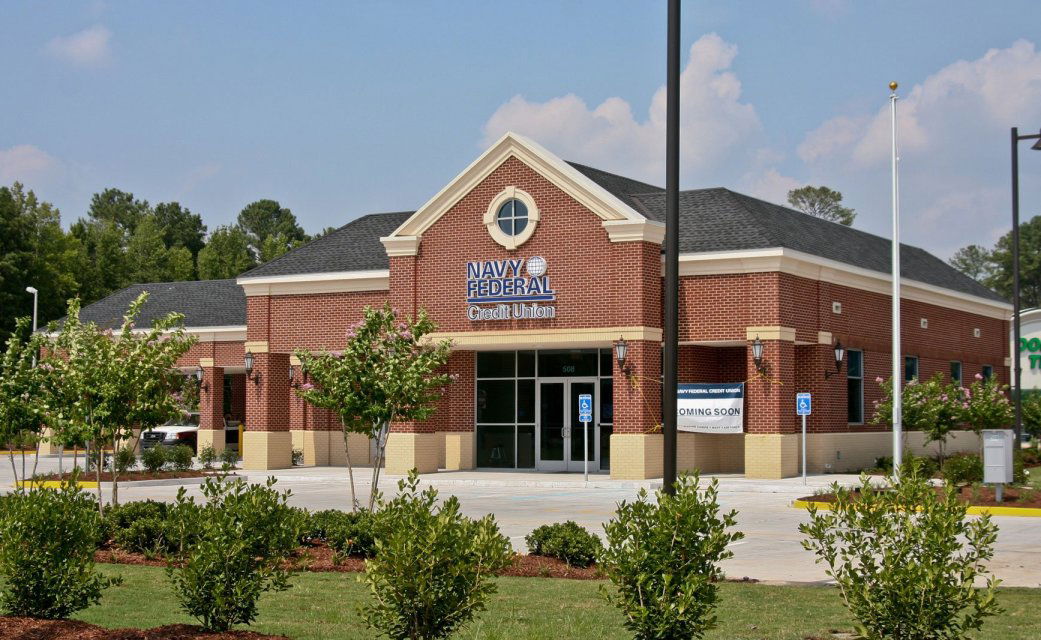At first glance, credit unions and banks may not seem that different from each other. After all, they both offer consumer checking and savings accounts, and they also provide loans using deposits.

However, banks and credit unions also maintain several differences, particularly in their organizational design, infrastructure, and rates and fees.
We’ll show you what the differences are between these two types of financial institutions so you can decide which is right for you. With so many options available, it’s wise to explore them all to make managing your finances easier and more efficient.
What is a credit union?
A credit union is a member-owned financial institution that operates as a non-profit. You’re not just a customer—you’re a part-owner. Membership typically requires a shared connection, such as working for the same employer, living in a certain area, or belonging to a specific organization.
Joining a credit union means your deposits buy shares in the institution. Members elect a volunteer board of directors, and profits are returned through lower fees, better loan rates, and higher savings yields—not paid out to shareholders like at for-profit banks.
Credit unions often offer competitive rates on credit cards, auto loans, mortgages, and personal loans. While options vary, many beat traditional banks on pricing. And like banks, they insure deposits up to $250,000—through the NCUA instead of the FDIC.
Who can join a credit union?
Qualifying for membership depends on the specific credit union you’d like to join. Local credit unions are convenient because you can develop a personal relationship with employees while enjoying easy access to branches and ATMs.
One of the easiest types of local credit unions to join is a geographic one. As long as you live within its physical boundaries, you should qualify for membership.
Check out your area for county, city, and state credit unions. You might also find a credit union attached to your place of work if your job is with a major employer. Many governmental agencies also offer credit unions for county or state employees.
There are plenty of credit unions that simply require a low, one-time donation to a specific non-profit organization to qualify for membership. Plus, regulations are becoming more inclusive to help smaller credit unions expand their membership criteria and open their doors to more customers.
See also: Best Credit Unions Anyone Can Join
Advantages of Joining a Credit Union
Credit unions are structured to serve their members, not shareholders. Because they operate as not-for-profit cooperatives, earnings are returned to members through better rates, lower fees, and more personalized service.
Here are some of the biggest benefits:
- Lower fees: Most credit unions charge fewer and smaller fees than traditional banks. That includes lower overdraft fees, no monthly maintenance fees, and fewer hidden charges.
- Better rates: Credit unions usually offer lower interest rates on loans and higher interest rates on savings accounts and certificates.
- Member-focused service: Since members are also part-owners, credit unions often emphasize customer service and community engagement more than large national banks.
- Local ties: Many credit unions support local initiatives and may provide exclusive perks for people who live or work in the area.
- Flexible approvals: Credit unions may be more open to working with members who have lower credit scores or limited credit history.
See also: Why Joining a Credit Union is a Smart Financial Move
Drawbacks of Joining a Credit Union
Credit unions aren’t the best fit for everyone. While they offer member benefits and lower costs, they may fall short when it comes to technology, convenience, or product variety.
Here are some things to watch for:
- Limited access: Some credit unions only serve certain communities or employers, and many have fewer physical branches or ATMs than national banks. That being said, many participate in a co-op ATM network, allowing members to use other credit unions’ ATMs without added fees.
- Fewer digital tools: Smaller credit unions may lack advanced mobile apps, budgeting features, or 24/7 customer support.
- Narrower product selection: You might not find premium credit cards, business banking, or specialized loans. If you want a broad mix of products, look at larger credit unions or full-service banks.
See also: Best Nationwide Credit Unions of 2025
What are the main differences between credit unions and banks?
Choosing between a bank or credit union really comes down to what you’re looking for in a financial institution. If you’re having trouble deciding, write down your needs and rank them by priority.
If you travel frequently and need free ATM access, you might want a large bank with locations across the company. You may also prefer a bank if you deposit checks frequently and want the most advanced technology for mobile check deposits.
On the other hand, you could value spectacular customer service along with low interest rates and fees. In that situation, a credit union might be a more attractive option for you. Consider your priorities and values to figure out which one will save you time, money, and stress when dealing with your finances.
What are the best credit unions to join?
Once you’ve decided to join a credit union, there are countless options to choose from. Start by exploring your local options. But if you’re looking for credit union membership with broad guidelines and a strong online presence, you still have a long list of contenders. Check out our shortlist below.
Consumers Credit Union
Consumers Credit Union is open nationwide with a one-time $5 membership fee and a $5 deposit into a savings account. What stands out is their high-yield checking—earn up to 5.00% APY by meeting monthly activity requirements.
Consumers also offers competitive rates on auto loans, mortgages, and personal loans, plus a user-friendly mobile app and strong customer service.
Alliant Credit Union
Alliant is another strong choice. Along with Chicago-based membership opportunities, you can also join by donating to Foster Care for Success. Once you’re a member, you’ll enjoy benefits such as a new mobile app, and free access to your credit score. You’ll also have access to more than 80,000 free ATMs across the country.
Alliant’s free checking account doesn’t have a minimum balance requirement. You can also choose from several savings accounts with a 3.10% APY. Additionally, you can sign up for various other financial products. These include loans, IRAs, trust accounts, and different types of insurance policies.

Affinity Plus
Affinity Plus FCU based in St. Paul, Minnesota, is open to anyone who makes a one-time $25 donation to the Affinity Plus Foundation. You can also qualify by working for the state of Minnesota or volunteering with an eligible organization.
The free checking account includes modern features like online bill pay and mobile check deposit. Affinity also offers support for retirement, estate, and education planning, plus insurance services. Business banking tools are available for self-employed members.
Connexus Credit Union
Connexus Credit Union offers nationwide membership with a one-time $5 donation to the Connexus Association, which supports charities like the American Cancer Society and United Way.
Members can open a free checking account and a savings account with just a $5 minimum. Connexus also offers specialty accounts like a Holiday Club Savings, money market accounts, IRAs, education IRAs, and HSAs—making it a flexible option for both everyday banking and long-term saving.
Final Thoughts
Credit unions and banks both offer essential financial services, but they serve different priorities. If you want personalized service, lower fees, and better rates on loans and savings, a credit union may be the better fit—especially if you qualify easily for membership.
However, banks often lead when it comes to digital tools, nationwide access, and product variety. The right choice depends on what matters most to you: cost, convenience, or features. Take a close look at your financial habits and goals before deciding where to keep your money.




